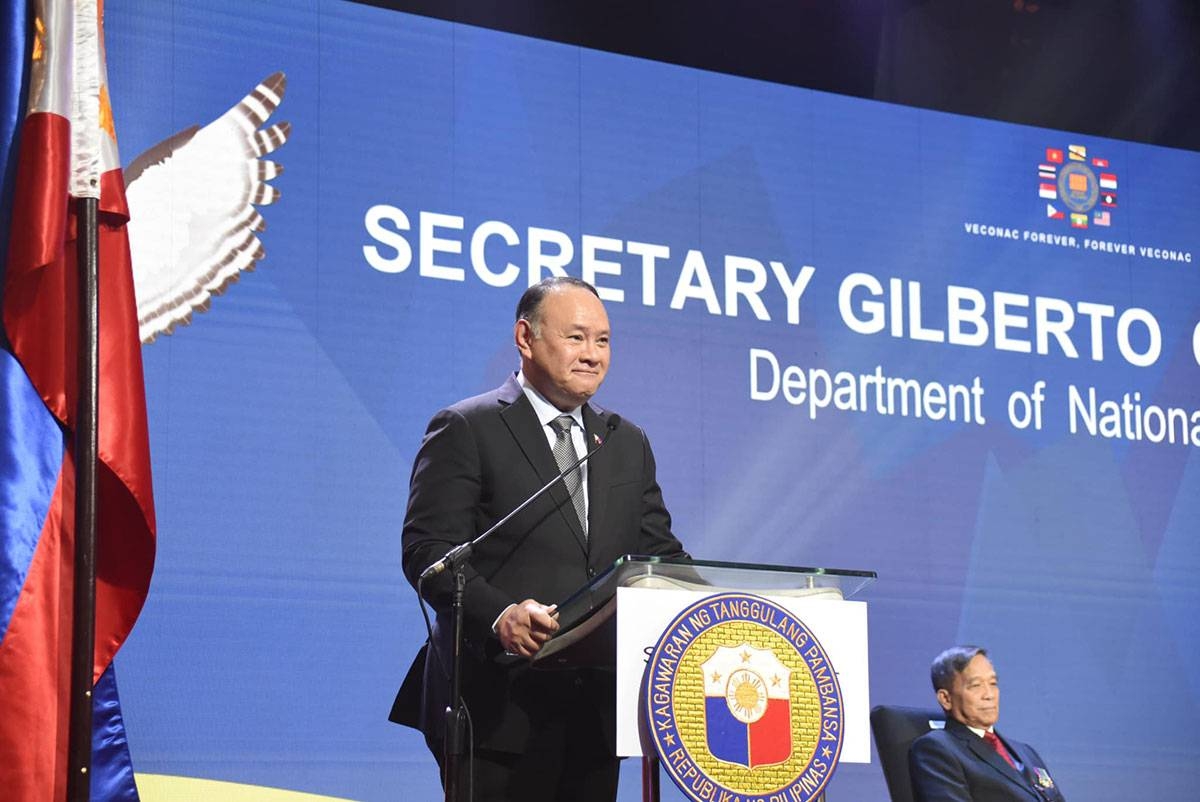Defense Secretary Gilbert Teodoro Jr. emphasized the importance of safeguarding the Philippines from external threats during his address at the Camp Aguinaldo military headquarters in Quezon City. Teodoro urged the Armed Forces of the Philippines (AFP) to prioritize the preservation of the country’s territorial integrity and sovereignty in the coming year.
In his speech, Teodoro highlighted the mission of the AFP, which includes maintaining peace and order, collaborating with allies to improve not only the Philippines but also the Indo-Pacific Region and the world as a whole. While he did not explicitly mention the events in the West Philippine Sea, Teodoro acknowledged the increased presence of Beijing in the area, encroaching on territories within the Philippines’ exclusive economic zone (EEZ) and employing tactics such as water cannon attacks on Philippine vessels.
Teodoro also expressed the government’s commitment to transforming the entire Department of National Defense (DND) and the AFP into a more robust and efficient agency. He commended the defense family for their cooperation in the previous year’s efforts to introduce new skills, paradigms, and capabilities within the organization. Teodoro emphasized the unwavering support of President Ferdinand Marcos Jr. for the DND and the AFP, underscoring the unity and shared mission of the defense forces.
AFP Chief Romeo Brawner Jr. outlined the military’s focus for the new year, which includes the development of materiel and capabilities through a modernization program. Additionally, the organizational development of the reserve force is a priority. Brawner emphasized that these transformative efforts aim to enhance the military’s capabilities across all dimensions, marking the beginning of a more dedicated, professional, and modernized Armed Forces of the Philippines.
In response to recent comments by German Federal Foreign Minister Annalena Baerbock on Beijing’s South China Sea policy, the Chinese Embassy in the Philippines expressed dissatisfaction, accusing Baerbock of distorting the truth. The embassy disputed Baerbock’s claims that China’s maritime claim lacks international support and endangers freedom of shipping routes in the South China Sea. They asserted that China’s sovereignty, rights, and interests in the disputed waters are firmly grounded in history, law, and international agreements, including the UN Charter.
It is crucial for the international audience to understand the context of the Philippines’ concerns about external threats. The West Philippine Sea dispute involves conflicting territorial claims and maritime rights in the South China Sea. The Philippines, along with other countries in the region, has expressed concerns about China’s increasing assertiveness in the area. These concerns revolve around the protection of their exclusive economic zones, freedom of navigation, and adherence to international law.
The Philippines’ commitment to safeguarding its territorial integrity and sovereignty reflects its determination to protect its national interests and ensure regional stability. The government’s efforts to strengthen the DND and the AFP demonstrate its dedication to enhancing the country’s defense capabilities. By modernizing its military and developing its reserve force, the Philippines aims to be better equipped to address emerging security challenges and contribute to regional peace and stability.
In conclusion, Defense Secretary Gilbert Teodoro Jr.’s call to protect the Philippines from external threats emphasizes the country’s commitment to preserving its territorial integrity and sovereignty. The government’s efforts to transform the DND and the AFP demonstrate its dedication to enhancing the defense capabilities of the nation. As the Philippines faces challenges in the West Philippine Sea, it seeks to collaborate with allies and uphold international law to ensure regional stability and secure its national interests.







